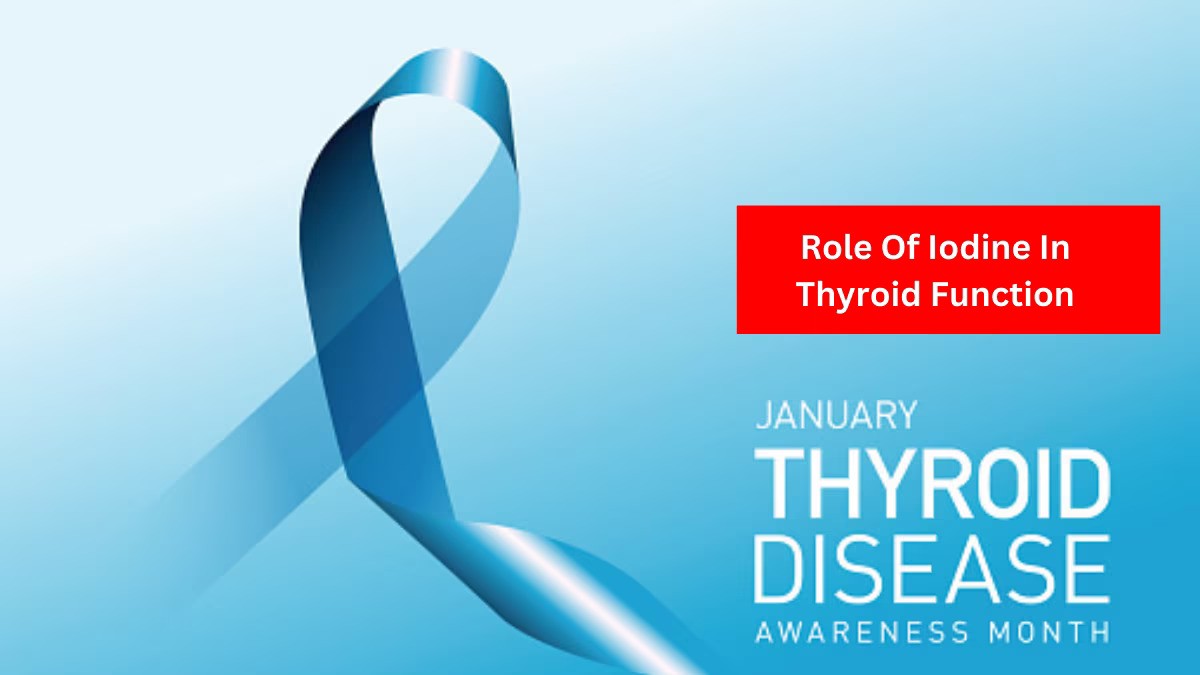The thyroid, a small butterfly-shaped gland in the neck, is responsible for regulating a variety of bodily functions. Iodine is an essential component for proper function. Iodine is a trace mineral that the thyroid gland requires to produce thyroid hormones, which are essential for metabolism, growth, and development. While iodine is necessary for thyroid health, an imbalance can result in thyroid dysfunction.
Iodine And Thyroid Hormone Production:
Dr. Dheeraj Kapoor, Chief of Endocrinology at Artemis Hospitals in Gurugram, explained, “The thyroid gland synthesises two main hormones, thyroxine (T4) and triiodothyronine (T3), both of which contain iodine, which is obtained through the diet–primarily from iodised salt, seafood, dairy products, and certain vegetables. The thyroid extracts iodine from the bloodstream and incorporates it into the hormone structures.”
Thyroid Dysfunction Due To Iodine Deficiency:
Todine deficiency is the leading cause of thyroid dysfunction globally. When the body lacks iodine, the thyroid cannot produce enough thyroid hormones. This condition, called hypothyroidism, can cause fatigue, weight gain, cold intolerance, and cognitive impairment. In severe cases, iodine deficiency during pregnancy can cause cretinism, a condition characterized by intellectual disabilities and stunted physical growth in offspring.
Iodine Excess And Thyroid Dysfunction:
While iodine deficiency is a serious issue, excessive iodine intake can also disrupt thyroid function. The thyroid has a delicate balance, and too much iodine can cause hyperthyroidism, which is when the gland produces an excess of thyroid hormones. This can result in symptoms like weight loss, rapid heartbeat, anxiety, and tremors
Iodine-Induced Thyroid Disorders:
In this regard, Dr. Dheeraj Kapoor stated that “certain populations are more vulnerable to iodine-induced thyroid disorders.” Individuals with pre-existing thyroid conditions, such as autoimmune thyroiditis, may be more sensitive to the effects of excess iodine. Additionally, some medications and supplements contain iodine, which increases the risk of iodine-induced thyroid dysfunction.”
The Importance Of Iodine Monitoring:
Iodine levels must be monitored because they play such an important role in thyroid function. Blood and urine tests can be used by healthcare professionals to assess iodine levels. Understanding a population’s iodine levels can inform public health interventions like iodine supplementation programs and dietary recommendations.
In this regard, Dr. Vinodh Kumar S, an MBBS, MD (Internal Medicine), and a Consultant Physician and Diabetologist at Connect & Heal, stated, “The recommended dietary allowance (RDA) for adults is 1.5mg per day, but during pregnancy, this requirement increases to 2.5mg for pregnant females and even further increases to 2.9 mg during breastfeeding.” Most people are considered safe with a daily dose of up to 1.5 mg. Excessive iodine can be caused by consuming too much iodized salt, drinking water, iodine-rich milk, certain seaweeds, and iodine-containing dietary supplements. Consuming more than 1.5 milligrams per day may pose risks, potentially resulting in acute and/or chronic toxicity.
Ayurveda And Hypothyroidism:
Ayurveda is an ancient medical practice that treats a variety of metabolic, lifestyle, and auto-immune conditions. This age-old Indian medical system aims to maintain overall health by balancing the body’s energies, or doshas.
Dr. Manoj Kuterri, the Medical Director and CEO of Atmantan Wellness Centre, stated, “According to Ayurveda, hypothyroidism is frequently linked to an imbalance in the “Kapha” dosha, which stands for the earth and water elements.” Thyroid gland problems can affect the throat chakra, which is thought to be part of the Kapha dosha. Ayurvedic treatments for hypothyroidism typically include dietary changes, herbal remedies, and lifestyle modifications.”
According to Dr. Kuterri, the following Ayurveda concepts could be used to treat Hypothyroidism:
- Diet and Nutrition: Ayurveda emphasizes a healthy and balanced diet. Add a variety of fresh produce, whole grains, lean meats, and fruits to your meals. Warm, prepared foods are an important part of a hypothyroid-management diet because they help with digestion and metabolism. Adding natural spices like ginger, turmeric, and black pepper helps to boost the digestive fire. Foods high in iodine, such as seaweed and iodized salt, may be beneficial because iodine is required for thyroid function. To maintain balance, limit your intake of cold or raw foods and focus on a variety of vegetables, healthy grains, and lean proteins. Maintaining optimal hydration with warm liquids, such as herbal teas, can improve overall health.
- Spices and Herbs: Ayurveda recommends a variety of herbs and spices to help people who are hypothyroid. The adaptogenic herb Ashwagandha, also known as Nature’s Multitasker, is thought to improve thyroid function and help regulate stress hormones. Triphala is a blend of three fruits (haritaki, bibhitaki, and amalaki) that aids digestion and elimination while also improving overall health. Guggul, which has anti-inflammatory properties, is commonly used to improve thyroid function and metabolism. Turmeric’s curcumin content may also have anti-inflammatory properties that benefit thyroid function. Spices such as ginger, cumin, and black pepper can help balance the Kapha dosha, which is associated with an underactive thyroid, by improving digestion and metabolism.
- Yoga and Mindfulness: Yoga is frequently recommended as a supportive therapy for those with hypothyroidism in Ayurvedic medicine. Certain yoga practices can help to stimulate and balance the thyroid gland. The Sarvangasana (Shoulder Stand) and Matsyasana (Fish Pose) have a direct effect on the throat, promoting thyroid function. These postures help to regulate thyroid function by increasing blood flow to it. The practice of Nadishodhana pranayama (alternate nostril breathing) and Ujjayi pranayama (Victorious Breath) can boost body metabolism, heat, and vigour, which is beneficial for hypothyroid patients. Regular yoga practice, which incorporates these poses and breathing techniques, benefits overall health by addressing the energy and physical aspects of thyroid function.

